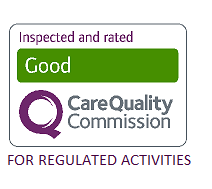Chlamydia
Chlamydia is one of the most common STIs in the UK and is transmitted during sexual intercourse. Most people don’t experience any symptoms so are unaware they are infected.
In women, chlamydia can cause pain or a burning sensation when urinating, a yellow pungent vaginal discharge, pain and/or bleeding during or after sex, or between periods. It can also cause heavy periods. In men, chlamydia can cause pain or a burning sensation when urinating, a watery or milky discharge from the penis, and swollen/ or tender testicles. Chlamydia may also affect the eyes as well as soreness in the throat.
Diagnosing chlamydia is done with a urine test or by taking a swab of the affected area. The infection is easily treated with antibiotics, but can lead to serious long-term health problems if left untreated, including infertility.
Bacterial Vaginosis
Bacterial vaginosis (BV) is a common yet poorly understood condition in which the balance of bacteria inside the vagina becomes disrupted. The most common symptom of BV is an unusal vaginal discharge that has a strong fishy smell, especially after sex. However, 50% of women with BV have no symptoms.
There is no evidence to suggest that a woman with BV can pass on any type of infection to her male sexual partner. But the same may not be true for women who have sex with other women. BV is a concern if it develops in pregnant women as it increases the risk of pregnancy-related complications, such as premature birth or miscarriage. However, the increase in risk is small. Bacterial vaginosis can also increase your risk of getting some STIs as it makes the vagina less acidic and reduces the natural defences against infection. It can be diagnosed from a urine sample.
Genital herpes
Genital herpes is a common infection caused by the herpes simplex virus (HSV), which is of the same virus group that causes cold sores.
If infected you may develop small, painful blisters or sores which may cause itching or tingling or make it painful to urinate.
After you’ve been infected, the virus remains dormant (inactive) for most of the time. However, certain triggers can re-activate the virus, causing the blisters to develop again, although they’re usually smaller and less painful.
It’s easier to test for HSV if you have symptoms. Although there’s no cure for genital herpes, the symptoms can usually be controlled using antiviral medicines.
Hepatitis B
Hepatitis B is a virus that primarily attacks the liver. The virus is mainly passed on by sexual contact, sharing contaminated needles to inject street drugs, or from an infected mother to her baby. The hepatitis B virus can cause a short-term (acute) infection, which may or may not cause symptoms. Following an acute infection, some people develop a persistent infection called chronic hepatitis B. Many people with chronic hepatitis B remain well but can still pass on the virus to others (as they are carriers). Some develop serious liver problems. If needed, antiviral medication may prevent or reduce the severity of liver inflammation and liver damage. Hepatitis B is diagnosed by blood testing.
Hepatitis C
Hepatitis C is a virus that primarily attacks the liver. Most cases occur in people who share needles contaminated with traces of infected blood, in order to inject street drugs. There is a small risk that an infected person can pass on the virus whilst having sex. Some people clear the infection naturally. Some people with persistent (chronic) infection remain free of symptoms but some have symptoms. After many years of infection, some people develop a severe scarring of the liver (cirrhosis) and some develop liver cancer. Treatment is difficult but it can clear the infection in up to half of cases. Hepatitis C is diagnosed by blood testing.
HIV
HIV is a potentially life threatening STD that requires management for the rest of your life.
HIV, also known as human immunodeficiency virus, is a virus that affects a person’s immune system and reduces their ability to fend off serious infections and disease. If it is not diagnosed or treated it can progress to become AIDS, a condition where the body completely loses its ability to fend off life-threatening infections.
HIV can be passed can be passed from person to person in a number of different ways. The most common cause is when someone has sex with an infected individual without a condom. HIV is a virus that is contained in the bodily fluids of an infected individual, but only certain kinds of bodily fluid contain enough of the virus to infect someone. These include:
- Blood
- Seminal fluid
- Vaginal Fluid
- Anal Mucus
- Breast Milk
Anal and vaginal sex are the most common ways to pass on HIV, with the NHS reporting that this accounts for 95% of all cases in the UK. However, it is also possible in rare circumstances to pass the virus on via oral sex.
The most effective prevention for HIV is by wearing protection during sex. If you are sleeping with someone and you are not 100% sure that they don’t have a sexually transmitted disease then you should always wear a condom. People who have HIV can reduce the risk of passing on the infection with effective antiretroviral therapy.
The only way to know for sure if you have HIV is by being tested. However, many people who have contracted the virus can experience a flu-like illness which occurs two to six weeks after infection. Following this there are no symptoms that indicate HIV for many years, but the virus continues to cause damage to the body’s immune system.
If HIV is left untreated the immune system will become severely damaged. Common symptoms of late stages of HIV and AIDS include:
- Weight loss
- Chronic diarrhoea
- Night sweats
- Skin problems
- Recurrent infections
- Life-threatening illnesses
Gonorrhoea
Gonorrhoea is a bacterial STI easily passed on during sex.
About 50% of women and 10% of men don’t experience any symptoms and are unaware they’re infected.
In women, gonorrhoea can cause pain or a burning sensation when urinating, a vaginal discharge (often watery, yellow or green), pain in the lower abdomen during or after sex, and bleeding during or after sex or between periods, sometimes causing heavy periods.
In men, gonorrhoea can cause pain or a burning sensation when urinating, a white, yellow or green discharge from the tip of the penis, and pain or tenderness in the testicles.
It’s also possible to have a gonorrhoea infection in your rectum, throat or eyes.
Gonorrhoea can be easily diagnosed using a urine test, or by taking a swab of the affected area. The infection is easily treated with antibiotics, but can lead to serious long-term complications if left untreated, including infertility.
Mycoplasma.
Genitalium is a sexually transmitted bacterium that can cause symptoms in both men and women. Other than chlamydia and gonorrhoea, it is a main cause of urethritis (inflammation of the urethra) in men. In women, it can be associated with other infections and cervicitis (inflammation of the cervix). Mycoplasma is diagnosed from a urine sample.
Syphilis
Syphilis is a bacterial infection that in the early stages causes a painless but highly infectious sore on your genitals or around the mouth. The sore can last for up to six weeks before disappearing.
Secondary symptoms such as a rash, flu-like illness or patchy hair loss may then develop. These may disappear within a few weeks, after which you will have a symptom-free phase.
The late or tertiary stage of syphilis usually occurs after many years and can cause serious conditions, such as heart problems, paralysis and blindness.
The symptoms of syphilis can be difficult to recognise. A simple blood test can usually be used to diagnose syphilis at any stage. It can be treated with antibiotics. When syphilis is treated properly, the later stages can be prevented.
Trichomonas vaginalis
Trichomonas vaginalis (TV) is an STI caused by a tiny parasite. It can be easily passed on through sex and most people are unaware they are infected.
In women, TV can cause a frothy yellow or watery vaginal discharge which has an unpleasant smell, soreness or itching around the vagina, and pain when passing urine.
In men, TV rarely causes symptoms. You may experience pain or burning after passing urine, a whitish discharge, or an inflamed foreskin.
TV can be diagnosed by a urine or swab test. Once diagnosed, TV can usually be treated with antibiotics.
Ureaplasma
Ureaplasma urealyticum is a bacterium that affects about 70% of sexually active men and women. Although it is not considered a typical STI, ureaplasma can be transmitted through sexual contact. Ureaplasma often carries no symptoms whatsoever, and most people may never experience any problems at all. However, colonies of the bacteria can multiply leading to symptoms and if left untreated can lead to complications. Ureaplasma can be diagnosed from a urine sample.










